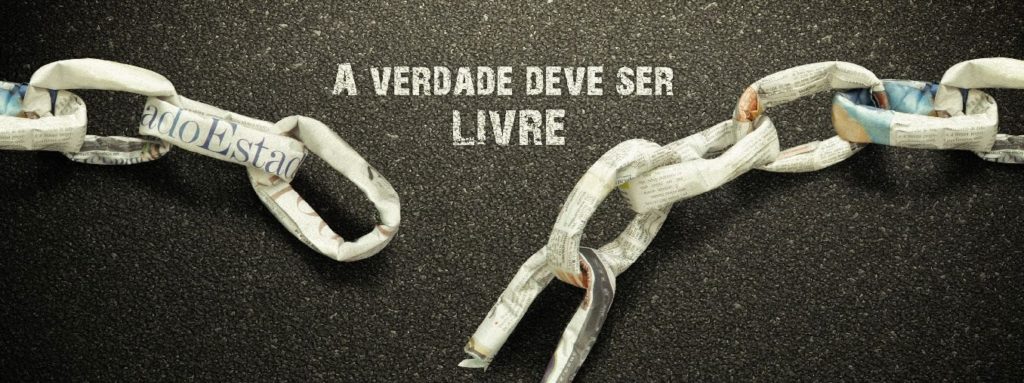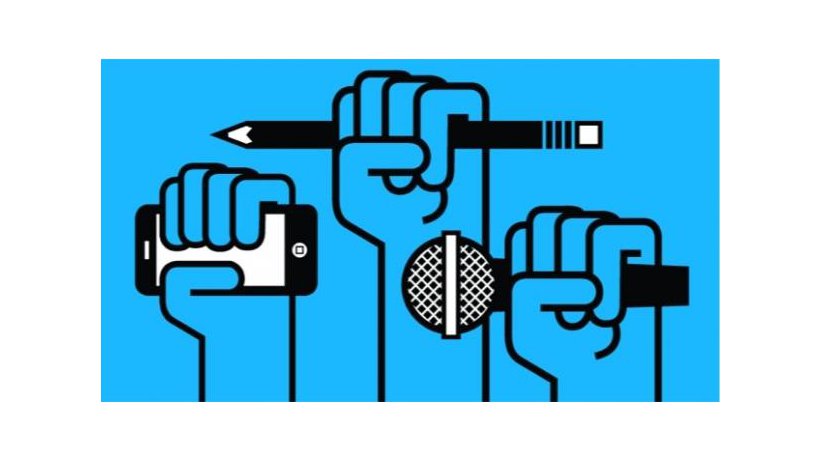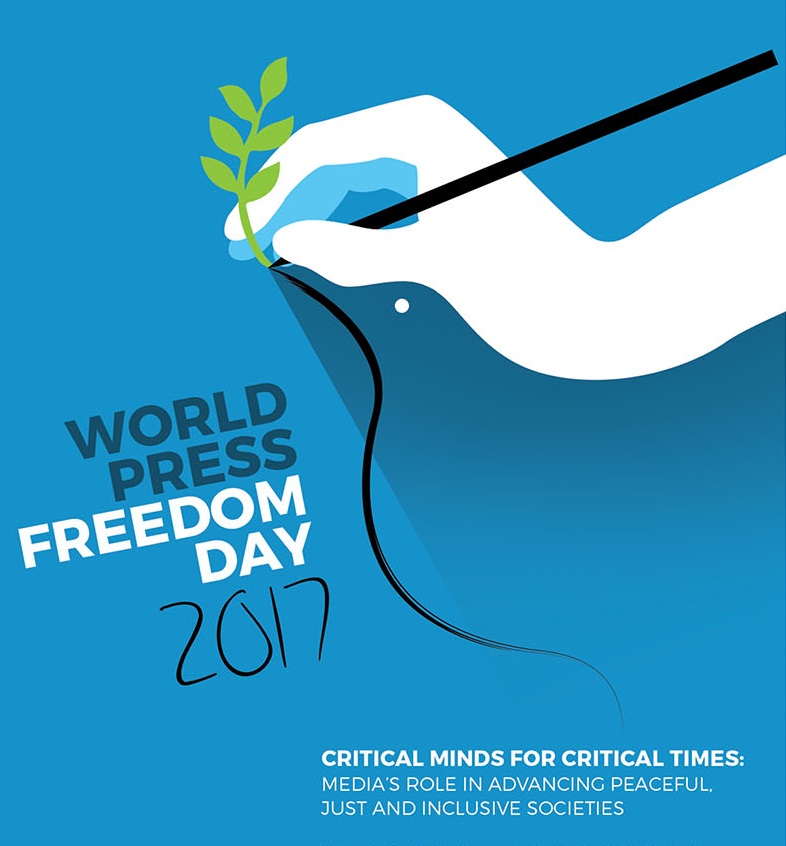 Today is International Press Freedom Day, a date celebrated since 1993 at the initiative of UNESCO.
Today is International Press Freedom Day, a date celebrated since 1993 at the initiative of UNESCO.
Freedom of the Press is one of those concepts that fill the mouths of citizens, politicians, journalists, but apparently it does not mean the same for everyone. Not even in Portugal.
The first official legislation on the right to information was adopted 250 years ago in the territories where Sweden and Finland are located today. It represented, at that time, a historic advance and continues to be a source of inspiration today, at a time when governments are increasingly adopting laws that allow (or restrict) public access to information.
There is a fact that must be retained, first of all: a media professional is murdered every 5 days around the world.
To analyze the state of Press Freedom around the world, it is useful to see what the Report on Press Freedom, prepared by Reporters Without Borders (RSF) in 180 countries, says.
This report says that the Norway it is the country with the greatest freedom of press, having even climbed two places since last year. North Korea is in last place.
The top five places in the ranking are occupied by Norway, Sweden, Finland, Denmark e The Netherlands, in that order.
Portugal rose five places in this ranking, compared to last year, now occupying the 18th position.
The RSF report indicates that “Portuguese law criminalizes defamation – and when the offended person is a public official, the penalty is one and a half times longer. Furthermore, judges have a strong propensity to see defamation everywhere.” ..that's why there are so many lawsuits against journalists and so many convictions.
Reporters Without Borders points out: “Portugal was convicted 21 times, between January 2005 and January 2017, by the European Court of Human Rights for violating article 10 of the European Declaration of Human Rights, which protects freedom of expression, that is, three times more than the European Union average. 14 of the 21 cases concerned journalists prosecuted for defamation.” Let's look at the position in the ranking of some of the main European countries: a Switzerland is in 7th place, but RSF sees cause for concern, due to the "disappearance of many press titles", Ireland is in 14th place (with the great concentration of media being the main problem), the Germany is in 16th place, the Spain (España) is in 29th place, having risen five positions since 2016, the United Kingdom is the 40th.
Let's look at the position in the ranking of some of the main European countries: a Switzerland is in 7th place, but RSF sees cause for concern, due to the "disappearance of many press titles", Ireland is in 14th place (with the great concentration of media being the main problem), the Germany is in 16th place, the Spain (España) is in 29th place, having risen five positions since 2016, the United Kingdom is the 40th.
A Italy (52nd) rises 25 positions after "having been acquitted, among others, of local journalists prosecuted in the VatiLeaks 2 case". But the RSF report stresses that Italy "remains one of the European countries where there are the largest number of reporters threatened by mafia and criminal organizations."
A França, on the other hand, regained six positions to occupy 39th place, "but that rise is mainly mechanical, after the exceptional fall it had in 2015, with the killing of Charlie Hebdo."
And the USA, what position do they occupy? According to the RSF report, they were 43rd in the overall ranking, having dropped two positions since last year. And one of the main problems is “media-bashing”.
“The coming to power of Donald Trump in the United States and the campaign for Brexit in the United Kingdom served as springboards for the practice of “media bashing”, for highly toxic anti-media speeches, making the world enter in the era of post-truth, disinformation and false news».
But there are other dangers: the obsession with surveillance and the failure to respect the secrecy of sources contribute to making numerous countries previously considered as virtuous examples to fall into positions: right from the start, United States (43rd, -2), but also the United Kingdom (40th, -2), the Chile (33rd, -2), or the New Zealand (13th, -8).
And the other Portuguese-speaking countries, how do they behave? worst of all is Angola, which occupies the 125th position among the 180 countries analyzed, having dropped two positions since 2016. According to the RSF Report, in Angola, there is «a press under control for 40 years». "Despite a very modest opening that ended the state's television monopoly, the control of journalists is still permanent, mainly through the offense of defamation, or more direct methods such as the arrest of journalists who are too critical." And last year, four new laws were passed that further restrict press freedom.
It follows the Brazil, which occupies the 103rd position and even rose one place. “Threats, attacks during demonstrations, murders… Brazil is still one of the most violent countries in Latin America for the practice of journalism,” says Reporters without Borders. "The field of communication is still very concentrated in the country, with strong influence from large industrial families, often close to the political class."
Timor-Leste is in 98th position and has also moved up one place. “Justice proceedings as a form of intimidation, police violence and public defamation of the media by government authorities or parliamentarians…Journalists in East Timor face numerous pressures that try to prevent them from freely exercising their profession,” says the report.
next Mozambique, in 93rd, who dropped six positions. In this official Portuguese-speaking African country, “journalists are frequent targets of lawsuits opened by the authorities, they are victims of intimidation campaigns. In 2015, Paulo Machava, who worked for the online newspaper Diário de Notícias, was shot down in the middle of the street. He had defended journalists prosecuted for defamation of the head of state».
A Guinea-Bissau, despite the huge political instability, rose two places to 77th place. Private media were reopened and the president "reaffirmed the rights to freedom of expression guaranteed by the Constitution, as well as the laws of 2005". But “self-censorship remains widespread when it comes to addressing government weaknesses, organized crime or the military's influence on society. Some journalists preferred to go into exile due to intimidation and threats».
Cape Verde It is, among the PALOP, the exception with regard to Freedom of the Press (and in so many other parameters), as it ranks 27th in the RSF ranking, having even gone up five positions since last year.
According to the Report, Cape Verde “is distinguished by the absence of attacks against journalists and a great freedom of the press, guaranteed by the Constitution. The last defamation lawsuit was in 2002. A large part of the media belongs to the government, especially the main television network, TCV, and the Rádio Nacional de Cabo Verde, but their contents are not controlled». But not everything is rosy: "There is, however, a certain level of self-censorship due to the small size of the country and the media landscape that encourages journalists not to have friction with potential future employers."
In conclusion, the 2017 Press Freedom report produced by Reporters Without Borders says that “press freedom has never been more threatened” in the world. “There are now 21 countries in the lower spectrum of the Ranking, that is, in which the situation of the press is considered “very serious”. 51 countries (compared to 49 last year) are in the “red”, where the freedom of information situation in these countries is considered “difficult”. In total, about two-thirds (62%) of the countries listed showed a worsening of their situation in 2016».
And in Portugal? In addition to the report data, what can you say? The crisis has led to the disappearance of many headlines across the country, while those that do exist are struggling with problems. Journalists are increasingly precarious and their jobs more dependent on the goodwill of their bosses. The media, national and regional, are increasingly dependent on advertisers - companies, public entities, namely City Councils - and on communication agencies, which serve them "news" ready to consume...
All of these are threats to Press Freedom and, ultimately, to the freedom of all of us. Because without freedom of press or information, there is no democracy. It would be good if we thought about this a little bit.
Click here for the full Press Freedom Report.




















Comments